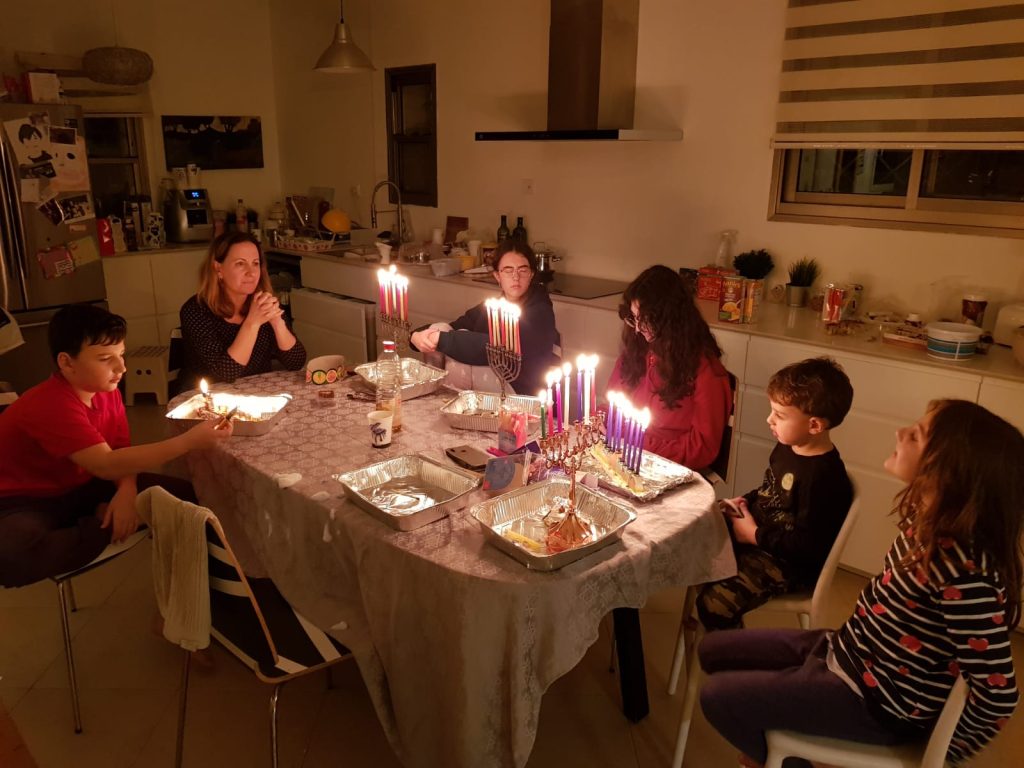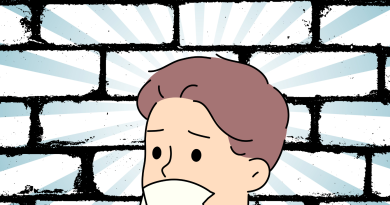America isn’t the land of the free without religious freedom
Respect for religious freedom isn’t just a principle. It’s the foundation for resolving conflicts in a diverse society.
2023 was a moment in U.S. history where the religious rights of the Jewish community to celebrate Hanukkah was brought into question by pro-Palestinian groups. This is in response to the conflict in Gaza which escalated when Israel retaliated to the attack on Oct. 7 from the terrorist organization known as Hamas.
Articles published in December 2023 by CNN, Truthout, Christians United for Israel and USA Today, paint a picture of how communities on all sides of the issue looked at the holiday season more closely.
More recently in May, I went to the UW Seattle campus to cover and write an article for The Ledger about the student led protest encampment. I found that the responses and opinions vary on the conflict depending on who you speak with. Still, I wanted to see what the atmosphere was like this holiday season.
“I grew up in America and in tenth grade we moved back to Israel,” said Rotem Horowitz, citizen of Isreal who is a former soldier of the Israel Defense Forces (IDF) and now an actress. “I kind of see both worlds and that’s how I’m making my opinion on this issue. Religion has nothing to do with it at the moment.”

As an American citizen, Horowitz grew up with American values of hearing both sides of an issue, which taught her the importance of being informed before making judgments. However, since the Gaza crisis began, she has witnessed increased hostility toward her community in the U.S., fueled by social media platforms like TikTok that often present only one side of the conflict. This has led her to feel safer in Israel—despite living under the constant threat of missile attacks—than she does in the United States.
“Jews in America have nothing to do with what’s going on in Gaza. They’re American Jews. That’s just anti-Semitism,” Horowitz said.
The brief history of Hanukkah, or the Festival of Lights, is about celebrating the rededication of the Second Temple in Jerusalem after the Maccabees defeated the Seleucid Empire in the second century B.C.E. The spiritual aspect comes in when a tiny bit of oil that should’ve lasted one day kept the temple’s menorah burning for eight days. It’s seen as miracle from God.
A Gallop poll taken in May shows that 46% of American Jews have reportedly had an increase in mistreatment because of religious affiliation since last October. 41% of American Jews polled reported the treatment has remained the same. Anti-Semitism is a thing, and it is very active in much of our communities.
30 years ago, in Billings, Montana, there was a movement called “Not In Our Town” that fought against antisemitism, according to the KXNET website. Bruce Kadden, Rabbi Emeritus of Temple Beth El in Tacoma, Washington likes to remind people of this historic event, because it had nothing to do with any conflict going on in Israel.
“I think it’s harder now because not everyone who wants to be supportive of the Jewish community in general feels that they can speak out, given everything,” Rabbi Kadden said.

In an article I wrote for The Ledger about Dia de Los Muertos, I pointed out traditional holidays look different in their country of origin than they would here in the U.S. If we go to Israel, Hannukah will look and feel much different there. But a menorah in a window should not be seen as offensive or as a target. People in the U.S. should not be scared or be prohibited to celebrate traditions that go back generations.
What I’m getting at is that America is a place where various people from different cultures and traditions are neighbors. You can drive down a neighborhood and see an American flag, an El Salvadoran flag or any flag that those individuals feel represent them. During the holiday season, because this is America, we should be able to see menorahs in people’s windows, Christmas decorations, even Quanza decorations and we should be proud that religious freedom is possible.
My rule is that if a tradition from another country isn’t bringing anyone physical harm, then those individuals should be free to practice them.
Rabbi Kadden went on to say, “there’s a lot of emphasis this season about thinking about peace. Obviously, it’s a long way away. But hopefully we focus on the traditions that are meaningful to us, but also keep in mind that there are many people suffering. Many Israelis who have lost loved ones, many Palestinians who have lost loved ones, and be reminded that they are the people that need our thoughts and prayers.”
Considering that those facing this conflict live in the Middle East, I was left wondering if people in the U.S. have been willing to check in on their neighbors and friends who have been impacted emotionally, financially or have maybe faced the tragic loss of a loved one. I for one, hope we will never shy away from someone who is suffering. We can’t stand on a moral high ground when those around us are crumbling and not care.
“I’ve had a number of private things said to me by people who check in to see if I’m doing okay, which is really appreciated, and it doesn’t matter where they happen to stand on the issue,” Rabbi Kadden said.
According to an article by PBS, there have been attempts at a ceasefire and a request to access Gaza for humanitarian purposes. However, these have fallen through because the immediate release of hostages taken by Hamas was not linked to the ceasefire. Negotiations and finding resolutions are ongoing and that is something to keep praying for and hoping for.
“People are still hopeful for peace,” Horowitz said.
I see that the Jewish community in the U.S., the Israelis, the Palestinians and Pro-Palestinian protestors want peace not only for this season, but for the good of humanity.
“There does seem to have been more discussion about negotiations, hopefully coming to fruition. Although very iffy because there’s so many factors as far as that goes. But I think that would be very welcome,” said Rabbi Kadden.
I say, let’s go make peace with our neighbors.






